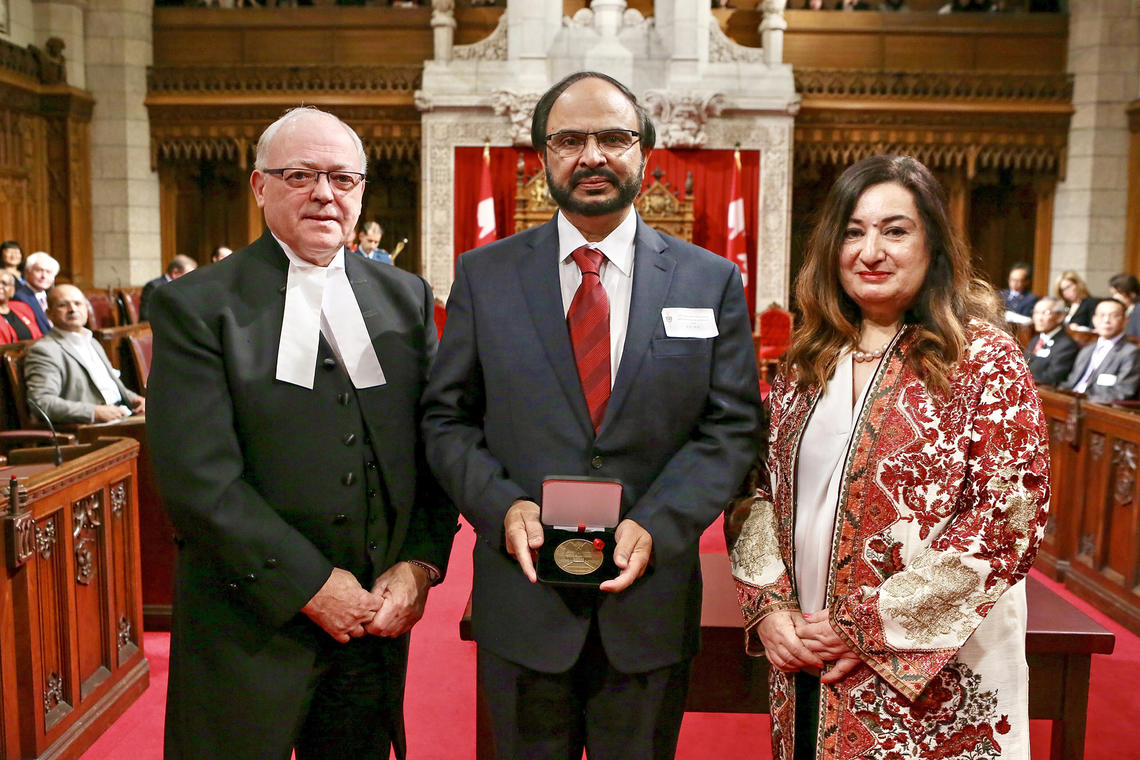A neurochip is an integrated circuit chip (such as a microprocessor) that is designed for interaction with neuronal cells.
Neurochip that can sense the electrical activity of the neurons (action potentials) in the above-standing physiological electrolyte solution. It also contains capacitors for the electrical stimulation of the neurons. The University of Calgary, Faculty of Medicine scientists led by Pakistani-born Canadian scientist Naweed Syed who proved it is possible to cultivate a network of brain cells that reconnect on a silicon chip—or the brain on a microchip—have developed new technology that monitors brain cell activity at a resolution never achieved before.

Naweed Syed is the first neuroscientists to prove the feasibility of connecting neurons to a chip did so over 30 years ago. See https://pubmed.ncbi.nlm.nih.gov/2586157/ Dr. Syed’s research is focused at cellular and molecular mechanisms underlying brain development and plasticity. Specifically, he studies how networks of brain cells assemble during development and modified throughout life to form the basis for learning and memory. He also investigates how various anesthetic agents affect communications between brain cells and induce cytotoxicity.
Naweed Syed

Professor, Department of Cell Biology and Anatomy, University of Calgary
In his research, Dr. Syed utilizes modern, state-of-the-art electrophysiological, patch clamp, time-lapse video and fluorescence imaging, cell culture and molecular biological techniques. His prime interest is in the cellular and molecular basis of rhythm generation and specific synapse formation. Dr. Syed specifically studies the intrinsic and network properties of various neuronal ensembles which underlie rhythmic behaviours. He is also interested in investigating the cellular and molecular mechanisms underlying nervous system development, plasticity, regeneration and degeneration. His lab also pioneered several neuron-chip interfacing technologies to monitor brain cell activities from cultured and intact brain slices in both invertebrate and vertebrate neurons.

After two decades of painstaking design, experiments, redesign and observations, Dr. Naweed’s two-way brain-chip is almost ready for human trials. At first, the bionic chip will be used to manage patients suffering from epilepsy – especially those who do not respond to any drugs present on our shelves
It is made of silicon that is doped in such a way that it contains EOSFETs (electrolyte-oxide-semiconductor field-effect transistors) that can sense the electrical activity of the neurons (action potentials) in the above-standing physiological electrolyte solution. It also contains capacitors for the electrical stimulation of the neurons. The University of Calgary, Faculty of Medicine scientists led by Pakistani-born Canadian scientist Naweed Syed who proved it is possible to cultivate a network of brain cells that reconnect on a silicon chip—or the brain on a microchip—have developed new technology that monitors brain cell activity at a resolution never achieved before.
Developed with the National Research Council Canada (NRC), the new silicon chips are also simpler to use, which will help future understanding of how brain cells work under normal conditions and permit drug discoveries for a variety of neurodegenerative diseases, such as Alzheimer’s and Parkinson’s.
